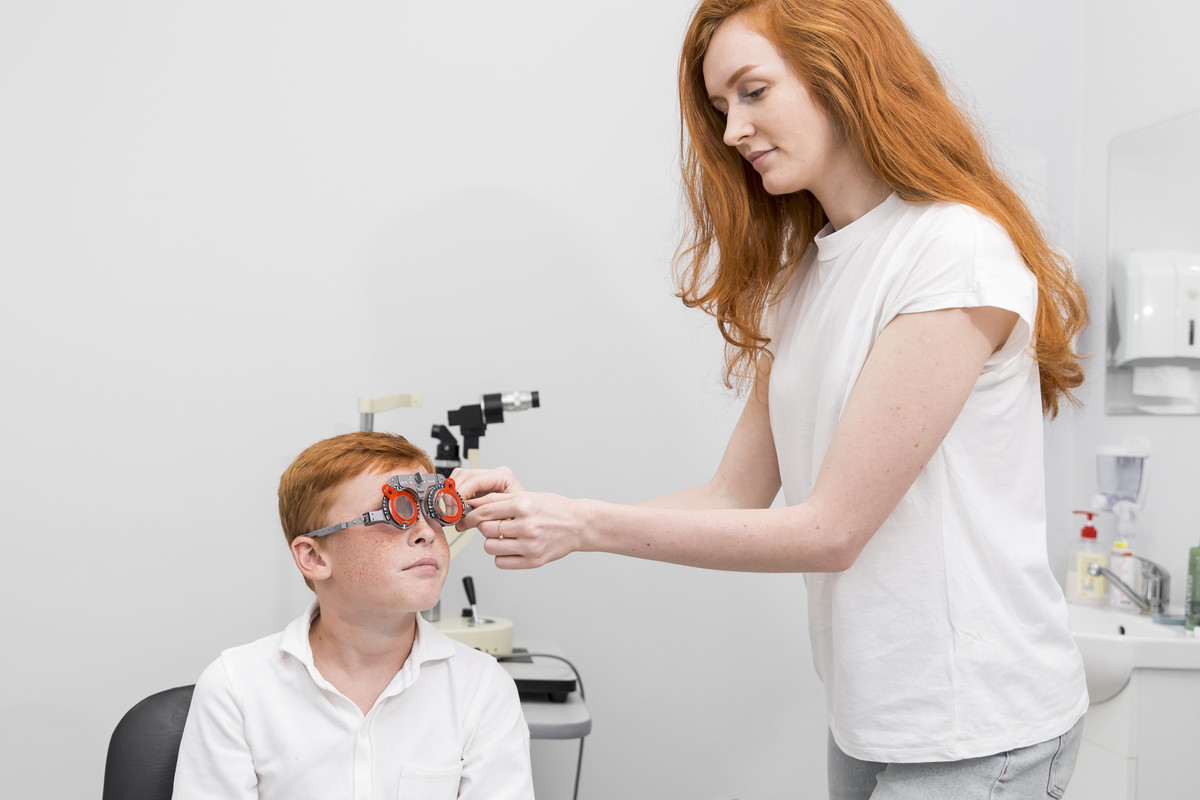Can you remember the last time you had an eye test? Was it last year, a couple of years ago, or has it been longer still? Well, if not, you might be wondering if you really need one. After all, you can still see clearly, right? Wrong! In broad strokes, routine eye tests are about much more than upgrading your glasses or contact lenses. They are a preventative measure, an essential part of maintaining overall eye health. In this blog post, we're going to dive deep into bulk-billed eye tests and unveil their pivotal role in eye care.
Your eyes, much like the rest of your body, are subject to age and disease. Despite retaining a clear vision, you might still be at risk for several silent, asymptomatic eye diseases. Incredulously enough, conditions like glaucoma, cataract, and macular degeneration often showcase no early symptoms. Can these lurking threats be detected? Yes, they can, through regular bulk-billed eye tests
By shedding light on these fundamental questions throughout our discussion, this blog post aims to reveal the necessity and benefits of bulk-billed eye tests. We'll reveal what they are, why they are so important, when it's recommended to have one, and who can benefit from them most.
The Basics of Bulk-Billed Eye Tests

Let's start by unwrapping the concept of a bulk-billed eye test. It's a comprehensive eye examination that’s covered by Medicare, provided that you hold a valid Medicare card. These tests involve a thorough examination of your visual acuity, alongside an inspection of the internal and external health of your eyes. If you meet the eligibility criteria, the entire debt for the eye testing service is forwarded to Medicare, meaning you won't be out of pocket.
Moreover, a well-conducted eye test can unveil hidden eye anomalies, providing a chance for early intervention. By identifying eye problems early, health professionals can administer treatment or put measures in place to better manage the condition. So, despite having clear vision, regular bulk-billed eye tests could save you from the sneak-attack of silent eye diseases.
Why are Bulk-Billed Eye Tests Necessary?
Individuals, particularly those over the age of 40, should consider regular eye health screenings as important as routine visits to the doctor or dentist. Unbeknown to many, a raft of health conditions such as diabetes, high blood pressure, even brain tumors can be detected via thorough eye examinations. These tests essentially provide a window into your overall health, making them too significant to overlook.
Moreover, Australians have access to bulk-billed eye tests, facilitated by Medicare. This means preventative vision care becomes affordable, encouraging more people to prioritize their eye health. Timely detection can lead to helpful interventions, impeding the development of potentially severe issues.
Recognizing the Symptoms and Risks
It’s also fundamental to recognize the common symptoms and risks associated with eye disorders. Issues like continual headaches, blurred vision, and having difficulty seeing in low light could be signals from your body necessitating immediate attention. Individuals over 40, those with a family history of eye disease, or people with systemic health issues like diabetes and hypertension are at a higher risk of developing eye conditions.
Weighing the Pros and Cons
The most notable advantage of bulk-billed eye tests is the cost. While private optometrists can sometimes provide more specialized care, their services come with a significant price tag. On the contrary, bulk-billing offers comprehensive eye care, inclusive of all Australians.
However, it's important to note that bulk-billed eye tests might involve longer wait times, and in some cases, less personalized care compared to private health services. The trade-off essentially revolves around reduced costs versus a more personalized and expedient service.

Knowing When to Have an Eye Test
While it's advisable to have an eye test every two years, those over 65 should consider getting tested annually or as recommended by their health professional. People with pre-existing eye conditions or risk factors for eye disease may require more frequent check-ups. After all, prevention is better than cure.
Conclusion
As we draw a close on this illuminating conversation about bulk-billed eye tests, it's clear that these tests are more than a mere formality. They play an integral part in preventative eye care and maintain overall eye health. By making use of the affordable services offered by bulk-billing, individuals can often detect underlying eye conditions before they present significant symptoms.
Despite the possible downsides such as longer wait times, the benefits of this mode of eye care weigh considerably higher. It ensures that all Australians have access to essential vision care and that cost doesn't become a barrier in seeking help. After all, if an eye test can help prevent vision loss and improves quality of life, surely a call to your local medical centre doesn't seem too much to ask?


